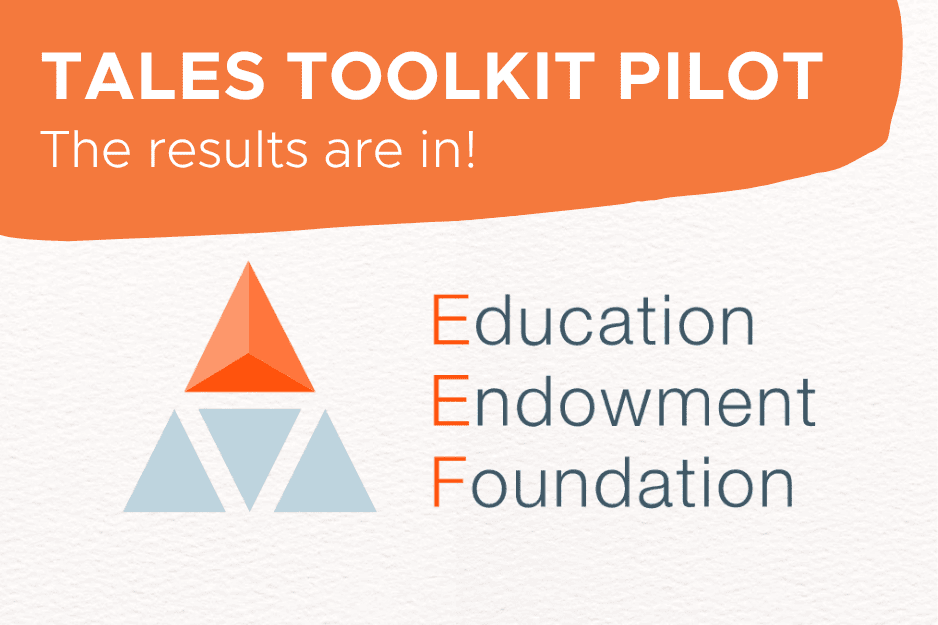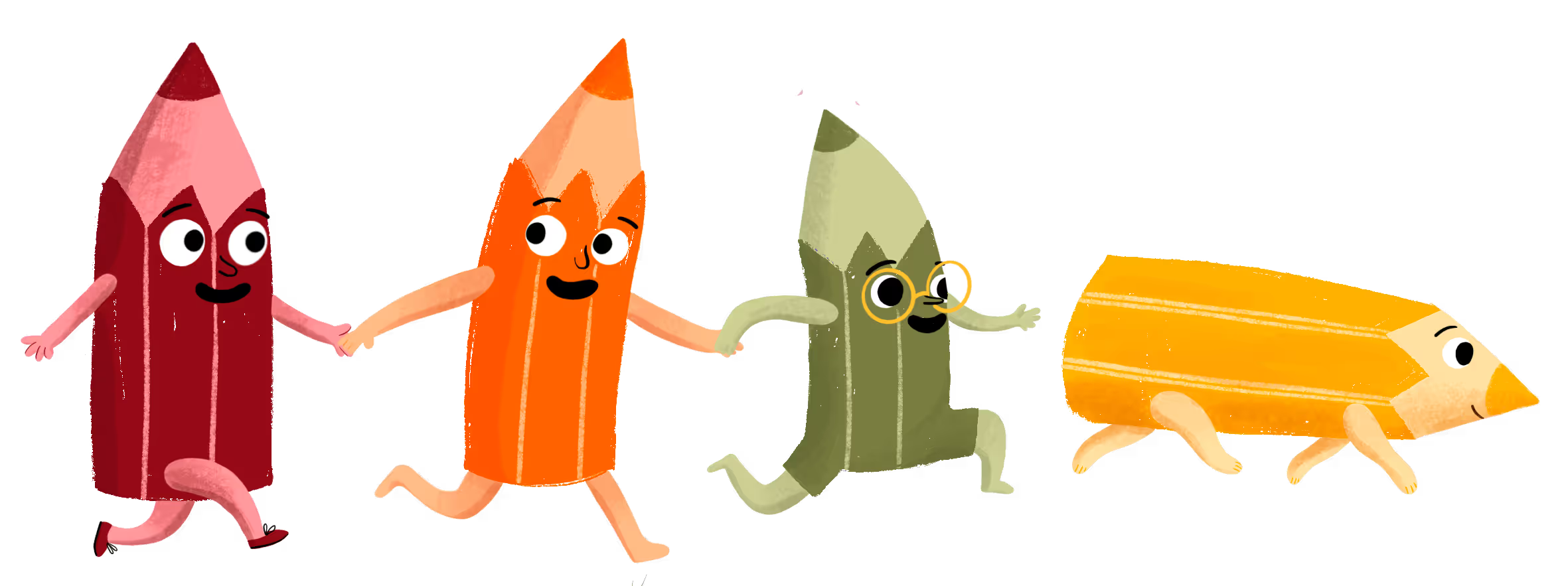Today’s blog has been written by the lovely
Liz Adie from Cale Green Primary school, Stockport.
Liz is the Early Years lead in one of the very first trial schools to use Tales Toolkit so has been part of our family from the start. We have lots of schools in Stockport using Tales Toolkit and many of these heard about us because of the wonderful work that Liz has been doing with her team. I’ve visited Cale Green Primary twice now and each time I go I’m excited to see the new ideas and the enthusiasm of the team. Super happy to have Liz and Cale Green members of the Tales Toolkit family and looking forward to hearing many more stories in the future.
Handing over to you Liz…
I have had the pleasure and privilege of working at Cale Green Primary School for 16 years and have been the Early Years Leader for 12 years. I have taught in both Nursery, Reception and Year One during my time at the school and now teach one of our Nursery classes on a part-time (job share) basis.
Our school serves a diverse community and is truly comprehensive.
In 2017, Ofsted recognised the hard work we do to create and maintain community cohesion, saying,
“The treasure in your school is the strong sense of community. At your school, community cohesion is not an initiative from a past era but a living reality. It motivates everyone. As one pupil told me,‘even though we are all different we are treated the same. We are all special and unique.' Pupils who come to this school are given the skills and confidence they need to be positive contributors to life and society in Britain today.”
Ofsted Inspector, 2017
We are very proud of this accolade!
Our families range from affluent, living in period properties, to socially deprived, and living in ‘over-crowded’ terraces. Within this context we also serve a community of families for whom English is an additional language.

Our school Tales Toolkit journey officially began in 2016, when we became one of the ‘trial’ schools for the resource. However, my journey began even before this, when I was made aware of Tales Toolkit through social media, and I started to follow its updates with great interest
As a ‘trial’ school we were required to undertake the training and feedback any relevant information regarding the training materials and the impact of the resources on a regular basis. It was quite a tricky job to organise staff meetings for the whole team to attend together (being an EYFS department within a Primary School, with a busy staff-meeting schedule and some part-time staff) but a flexible team and a Head teacher who recognised its’ importance meant that between us, we were able to schedule opportunities for teachers and teaching assistants to spend quality time together for the training over half a term.
This was important because whilst working together we were able to reflect, comment and be open with one another, sharing our experiences – what worked and what didn’t – and collectively work to meet the needs of our two Nursery and two Reception classes.


Being a member of Tales Toolkit has given us the benefit of being able to re-watch training materials at any point, simply by logging-in and selecting the relevant session. This has been useful for me in reviewing my practice and in managing that of my team.
Early on, we agreed to some principles of quality interactions, and I have kept these principles at the forefront of everything I do when working with the children and staff.
One of the really profound things I learned from the training is that the three most important skills required to be successful in business are collaboration, communication and creativity. I have since observed and facilitated each of these skills in my Tales Toolkit sessions.
I feel we have a responsibility to educate our future business leaders,
so why not start while their young brains are developing so quickly?
As I learned from the training, 85% of brain development happens before the age of five! At about the same time I started using Tales Toolkit, I also began my own personal journey of implementing Anna Ephgrave’s ‘Planning in the Moment’ approach with my Nursery class.
Again, I had been interested in this approach having read about it on social media, and I had also been lucky enough to attend training with Anna herself. I just knew that it was the right approach for my cohort. In recognising the adult’s role in promoting child-led learning, enabling children to become deeply involved and make progress through the timely support of adults, children are able to make rapid progress. This approach seemed to me to fit well with the Tales Toolkit approach – allowing the child to take the lead in the learning. When we first introduced the resources to our classes our more ‘vocal’ and imaginative children provided most of the suggestions for story content.
This was fine because they created some really funny, silly stories which we were able to ‘bring alive’ with the addition of voice sounds, actions and repetition. Very quickly we found everyone (even the quietest EAL learners) were engaged and having fun. The structure of the story sessions meant that there was a safe, predictable environment in which everyone can get involved and have some fun. Even the most guarded children would join in with, “we need a solution!”
As we had hoped, we were seeing the benefits for children with EAL who, prior to this had not had the opportunity to join in vocally and share their ideas without the fear of, ‘getting it wrong.’

We found that Phase One phonics were being reinforced through making voice sounds, reciting rhymes and ‘ditties’ and using different voices for characters. The repetition element meant that it was safe for children to join in when they felt ready.
Alongside these group story-telling sessions we introduced the Tales Toolkit story element pictures into our provision, making sure we referred to them as we played with the children. So, for example, our small world and wooden block continuous provision was labelled according to characters and settings, and the problem and solution cards were available for the children and adults to access during their play.
This meant that quality, child-led interactions could take place where, if appropriate, story structure and language could be developed through play.

We provided mark-making opportunities, referring to the story elements as we made large marks in shaving foam with our hands or footprints with the water outdoors. We became wholly ‘submerged’ in stories!
Not only that, but we found that the Tales Toolkit format supported some of our children in their day-to-day interaction, using the ‘problem’ and ‘solution’ elements as social stories and in comic strips to reinforce our schools’ restorative approach to supporting children in their developing understanding of how their behaviour affects others.
When we felt it was appropriate we introduced the mark-making resources. We modelled using story-strips, little lined books and postcards. The children have loved them! In our Reception classes especially we have observed a large increase in the number of boys wanting to write stories independently, either by creating their own or by retelling and representing those created in group sessions. We have modelled drawing and writing during our group sessions, so that children can see how their ideas can be represented.

We have used the Tales Toolkit approach and resources for two years now. Its impact has been huge for all groups of children, and we are still discovering its’ potential! Our current cohort who are starting in Year One have had two full years of using the Tales Toolkit and are in a better position to continue their creative story-telling because of it. Our Year One teachers are now familiar with the Toolkit, and use the symbols and principles during the first term of Year One to support transition.

Looking forwards, my next goal is to fully engage all parents in the storytelling process with their children by providing opportunities for them to use the story bags, apron, props, story strips and little books at home. I intend to start by inviting parents to take part in our group story-telling sessions at school, (with a bilingual interpreter) to and to use our online learning Journal to share children’s stories.
I also hope to run Tales Toolkit sessions in our newly-created parent and toddler group.
I’m looking forward to hearing the amazing stories that our children will create, and to developing my own role as an Early Years professional in supporting all children, embracing their unique starting points and exploiting their potential as creative-story-tellers of today, and prospective business leaders of the future!












.jpg)











%20(1).jpg)
%20(1).jpg)
.jpg)
.jpg)






























.jpg)









